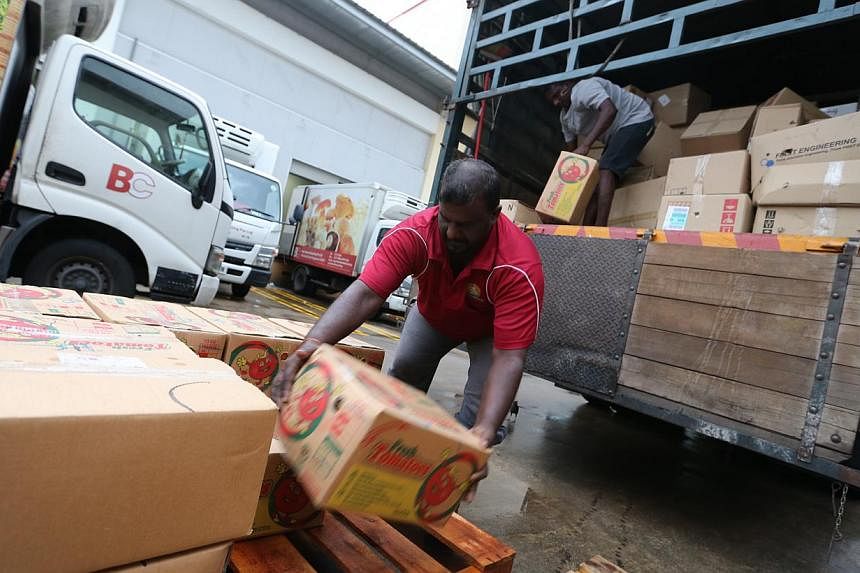Consumers will be spared - at least for now - any hike in prices of food items as a consequence of the upcoming Causeway toll hike.
Fresh produce importers and bus operators told The Straits Times that they would not be passing on the increased costs to their customers and plan to absorb these higher fees.
"One lorry can pack up to 3,000 birds, so that's no more than a one-cent increase per bird," said Mr Chew Kian Huat, secretary of the Poultry Merchants' Association. "The impact is very small."
Fresh produce importer Ban Choon Marketing is also keeping its fruit and vegetable prices flat, despite promising to give its 40 staff who commute daily from Johor a "token sum" of $200 once the toll hike kicks in.
This cost will not be passed on to consumers as it is "a show of goodwill" to his packers and warehouse storekeepers, explained general manager Joe Tan.
From today, light vehicles will be charged $9.80 on the Singapore side of the Causeway for a round trip, up from $1.90 previously. Heavy vehicles will be levied $13, up from $2.60.
The Straits Times spoke to 10 food importers and none had plans to raise prices because the new tolls had a minimal price impact, given the volume of goods being transported.
Supermarket chain FairPrice also said it will not increase the prices of its products from Malaysia. It added that it diversifies sources by importing goods from various countries to ensure that weather and socio-economic factors do not cause "supply and price shocks".
Meanwhile, the toll hike will also affect buses, which will be charged $5.30, up from $1. Most coach operators that The Straits Times spoke to said they were unaffected as they use the Second Link instead of the Causeway.
As for the cross-border buses which head over only to Johor, the Public Transport Council, which regulates bus fares, said that none of the six bus operators had recently applied to raise their fares.
Cabbies will also be levied $3.30 - up from the 60 cents they pay now. Although taxi fares are not regulated by the Government, no increase is planned for now.
"We are waiting for the reaction from the Malaysian taxi association first," said Mr Alex Tan, executive secretary of the Singapore-Johor Taxi Operators Association, which represents the 180 cabbies here who drive across the border. "Once they do something, we'll use that as a basis."
Higher toll hikes are also unlikely to affect property buyers, said experts. This is because Singaporeans who buy homes in the new Iskandar region usually rent or sell them. A small group use them as retirement or holiday homes.
Mr Donald Han, managing director of Chestertons, a real estate consultancy, estimates that only 10 per cent to 15 per cent of buyers are looking to occupy these properties themselves.
Even then, the cost of the tolls would be very small compared with the capital outlay for the properties, which cost at least RM1 million (S$388,000) each.
The upcoming Rapid Transit System linking Johor and Woodlands, which is expected to be ready in 2018, may also help to "alleviate the cost of commuting", said Mr Han.
ADRIAN LIM, MARISSA LEE

